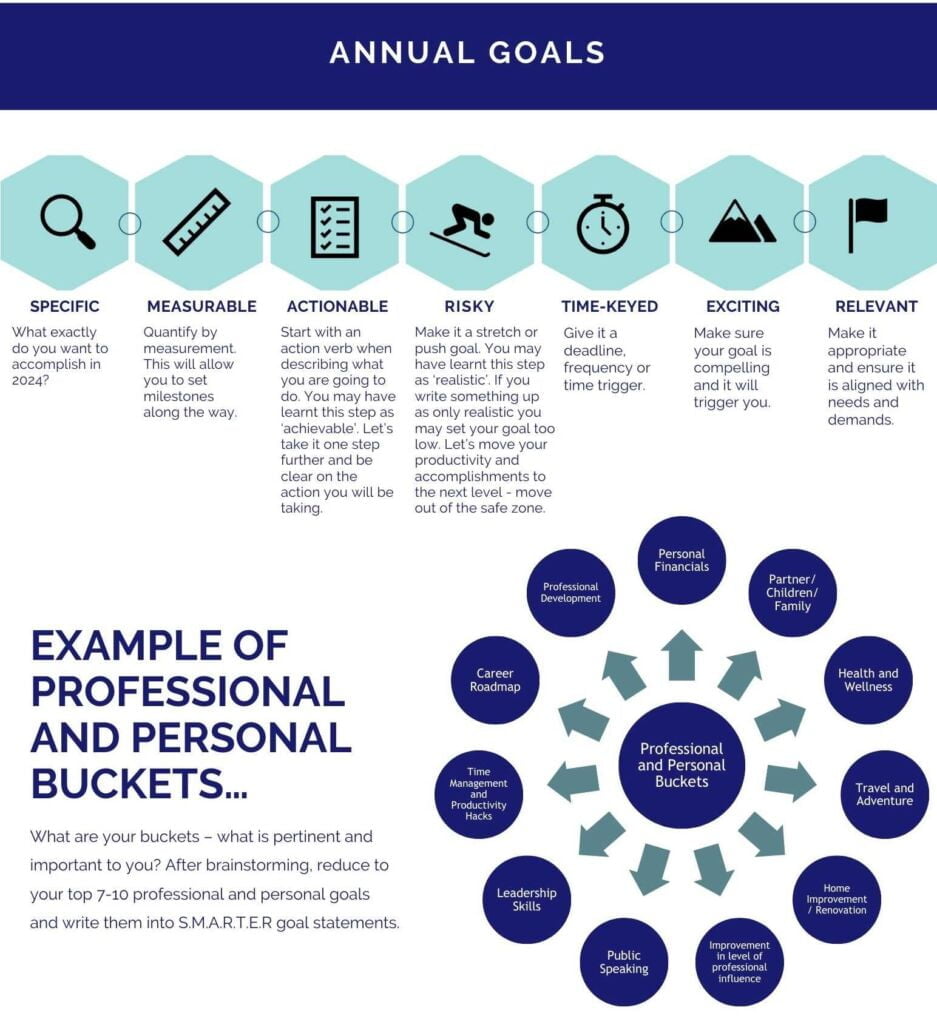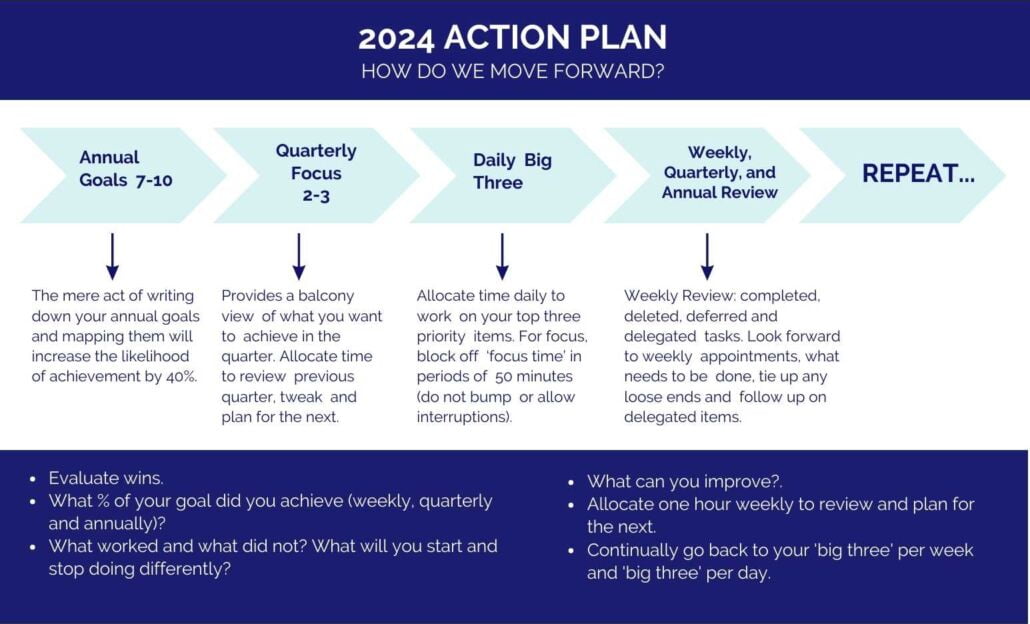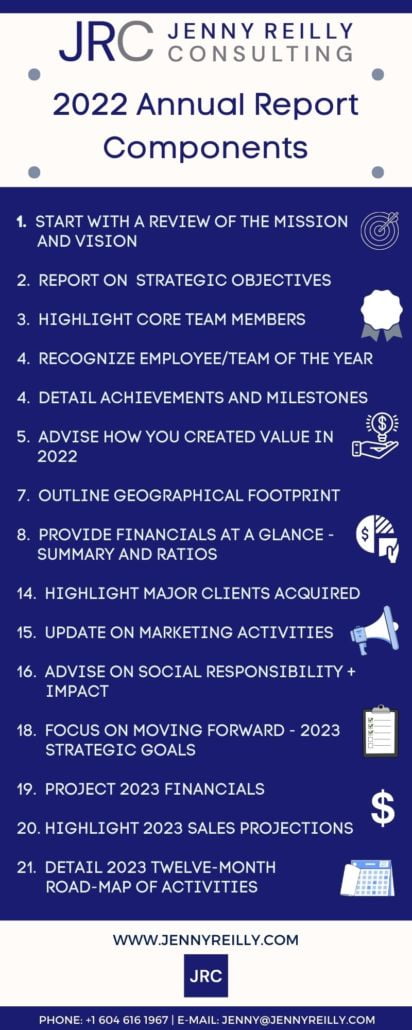Forging Ahead: Reflecting on 2023, Embracing 2024
Let’s start by reviewing our past year’s wins and challenges.
PROFESSIONAL AND PERSONAL ACHIEVEMENTS
- What three things have you done well professionally and personally this year?
CHALLENGES AND LEARNINGS
- Reflecting on the year, what areas or approaches did not work for you in 2023?
PROGRESS ON GOALS
- If you set specific goals for the year, how would you describe your progress toward achieving them?
TIME MANAGEMENT AND PRIORITIES
- In 2023, what activities or habits consumed most of your time and didn’t contribute significantly to your overall productivity?
PERSONAL ENJOYMENT
- What activities or aspects of your work bring you the most joy and fulfillment?
SKILL DEVELOPMENT GOALS FOR 2024
- Regarding professional growth, what are two specific skill areas you would like to focus on developing in the coming year?
Refining Your Path to Success: A Four-Step Blueprint for Defining Your Key Areas of Focus in 2024
Step 1: Equip Yourself
- Start by arming yourself with a pad of sticky notes.
- Find a quiet place to be free of disruptions and ensure you have a clean, organized surface area to work on.
Step 2: Set Time for Thoughtful Reflection
- Set aside a dedicated 20-minute timeframe for contemplation, allowing your mind to explore professional and personal aspirations for 2024.
- Capture each idea on a separate sticky note, placing them visibly in front of you.
- Generate a comprehensive list of ideas in the 20-minute timeframe.
Step 3: Transform Thoughts into Areas of Focus
- The next step is to organize your ideas into thematic categories or focused buckets.
- Once identified, prioritize these buckets based on their significance. Consider the potential impact on both your professional and personal spheres, adhering to the 80/20 rule – focus on the top 20% of activities yielding the most significant returns.
Step 4: Curate Your Top Priorities and Formulate SMARTER Goals
- Shortlist your priorities to your top 7-10, transforming them into well-defined professional and personal goals.
- Ensure your goals are S.M.A.R.T.E.R – specific, measurable, actionable, risky, time-keyed, exciting, and relevant.
- For each defined goal, identify the first three actions you will take and block off time in your schedule to action your tasks.
- This strategic approach sets the stage for a purposeful and successful 2024.


Reach out today to learn more about how Jenny Reilly Consulting can support you in strengthening your negotiation skills. You can book a complimentary 30-minute consultation. Or, please email askme@jennyreilly.com to coordinate a convenient consultation time.


 4. Celebrate Achievements And Win
4. Celebrate Achievements And Win 12. Optimize Your Workspace
12. Optimize Your Workspace
